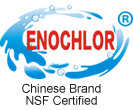12
2025
-
06
Exploring the Benefits of the Newest Calcium Hypochlorite Granule for Water Treatment
Exploring the Benefits of the Newest Calcium Hypochlorite Granule for Water Treatment Table of Contents 1. Introduction to Calcium Hypochlorite Granules 2. What is Calcium Hypochlorite? 3. Benefits of Calcium Hypochlorite Granules in Water Treatment 3.1 High Efficiency in Disinfection 3.2 Long Shelf Life and Stability 3.3 Cost-Effectiveness
Exploring the Benefits of the Newest Calcium Hypochlorite Granule for Water Treatment
Table of Contents
- 1. Introduction to Calcium Hypochlorite Granules
- 2. What is Calcium Hypochlorite?
- 3. Benefits of Calcium Hypochlorite Granules in Water Treatment
- 4. Application Areas of Calcium Hypochlorite Granules
- 5. Safety Considerations When Using Calcium Hypochlorite
- 6. Environmental Impact of Calcium Hypochlorite Granules
- 7. Future Trends in Water Treatment
- 8. Frequently Asked Questions (FAQs)
- 9. Conclusion
1. Introduction to Calcium Hypochlorite Granules
Water treatment is a critical component of public health and environmental sustainability. Among various chemical agents used in this process, calcium hypochlorite granules have emerged as a preferred choice due to their potent disinfection properties and versatility. This article aims to explore the myriad benefits of the newest calcium hypochlorite granules for water treatment, shedding light on their efficiency, safety, and applicability across various sectors.
2. What is Calcium Hypochlorite?
Calcium hypochlorite (Ca(OCl)₂) is an inorganic compound often utilized as a powerful bleaching agent and disinfectant. It is widely recognized for its efficacy in killing bacteria, viruses, and algae. As a solid compound, it typically appears as white granules or powder, making it easy to handle and transport.
When dissolved in water, calcium hypochlorite releases chlorine, which effectively sanitizes water by neutralizing harmful pathogens. This characteristic has led to its widespread use in both municipal and industrial water treatment processes.
3. Benefits of Calcium Hypochlorite Granules in Water Treatment
Calcium hypochlorite granules offer a range of benefits that enhance their suitability for water treatment applications. Below are some of the most compelling advantages.
3.1 High Efficiency in Disinfection
One of the primary benefits of calcium hypochlorite granules is their high efficiency in disinfection. The granules release chlorine upon dissolution, which efficiently targets and neutralizes a wide range of pathogens, including bacteria, viruses, and protozoa. This makes them exceptionally effective in ensuring safe drinking water.
Research indicates that calcium hypochlorite can significantly reduce microbial load in water, contributing to improved public health outcomes. Its fast-acting nature allows for quick sanitization, making it an essential tool for emergency water treatment situations.
3.2 Long Shelf Life and Stability
Calcium hypochlorite granules possess a notably long shelf life compared to other chlorine-based disinfectants. When stored in a cool, dry place, these granules can remain effective for years without significant degradation. This attribute not only minimizes waste but also ensures that communities have access to reliable disinfection solutions during times of need.
The stability of calcium hypochlorite granules is particularly advantageous for municipalities and industries that require consistent supply and performance. This reliability translates into effective water treatment processes, safeguarding public health.
3.3 Cost-Effectiveness
Cost considerations are always a priority in water treatment. Calcium hypochlorite granules are generally more cost-effective than many alternative disinfectants. Their high efficiency means that lower quantities are needed to achieve the same disinfection results, leading to lower operational costs.
Moreover, the long shelf life of these granules reduces the need for frequent purchases, further enhancing their economic viability. For water treatment facilities and industries, these factors contribute to more sustainable and budget-friendly operations.
4. Application Areas of Calcium Hypochlorite Granules
The versatility of calcium hypochlorite granules extends across various application areas, making them a go-to solution for different water treatment needs.
4.1 Municipal Water Treatment
Municipal water treatment facilities commonly utilize calcium hypochlorite for disinfecting drinking water. Its ability to eliminate unwanted pathogens ensures that water supplied to residents is safe and clean. Moreover, many municipalities appreciate the ease of use inherent in granule form, allowing for efficient handling and application.
Additionally, calcium hypochlorite granules can aid in the control of taste and odor issues in treated water, contributing to overall water quality improvement.
4.2 Swimming Pools
In recreational settings, calcium hypochlorite granules are a preferred choice for swimming pool sanitation. They effectively eliminate harmful microorganisms that thrive in warm, chlorinated water, ensuring a safe swimming environment. Pool operators favor these granules for their ease of application and long-lasting residual effect, which helps maintain sanitized water between treatments.
Regular use of calcium hypochlorite ensures that swimming facilities can provide clean, safe experiences for patrons, while also minimizing health risks associated with waterborne pathogens.
4.3 Industrial Applications
Industries that require water treatment for production processes, such as food and beverage manufacturing, also benefit from calcium hypochlorite granules. These granules are effective in large-scale disinfection applications, where maintaining sanitary conditions is crucial to product safety and quality.
Moreover, calcium hypochlorite's effectiveness in controlling biofilms in pipelines and processing equipment ensures that various contaminants are kept at bay, contributing to operational efficiency in industrial settings.
5. Safety Considerations When Using Calcium Hypochlorite
While calcium hypochlorite granules are highly effective, it is imperative to handle them with care to ensure safety. Key safety considerations include:
1. **Proper Storage**: Calcium hypochlorite should be stored in a cool, dry place, away from organic materials and acids that could cause reactions.
2. **Personal Protective Equipment (PPE)**: Individuals handling the granules should wear appropriate PPE, including gloves and masks, to minimize exposure risks.
3. **Avoiding Contamination**: It is crucial to avoid mixing calcium hypochlorite with other chemicals unless specified by manufacturer guidelines, as this could lead to dangerous reactions.
By adhering to these safety measures, users can maximize the benefits of calcium hypochlorite while minimizing potential hazards.
6. Environmental Impact of Calcium Hypochlorite Granules
The environmental impact of using calcium hypochlorite granules is a crucial consideration for water treatment facilities and industries alike. When applied correctly, calcium hypochlorite poses low risks to the environment. Its breakdown products, primarily chloride ions, are naturally occurring and do not accumulate in ecosystems.
Moreover, the effective disinfection of water prevents the release of untreated water containing harmful pathogens into the environment, thus contributing to overall ecological health. However, it is essential to monitor effluent quality to ensure that residual chlorine levels do not exceed safe environmental limits.
7. Future Trends in Water Treatment
The landscape of water treatment continues to evolve, with increasing emphasis on sustainability and efficiency. Looking forward, we can expect to see several trends related to calcium hypochlorite granules, including:
- **Innovative Formulations**: Manufacturers may develop advanced formulations of calcium hypochlorite that enhance its disinfection capabilities while minimizing potential byproducts.
- **Automated Systems**: The integration of automated dosing systems for calcium hypochlorite will improve precision in water treatment processes, optimizing chlorine levels and ensuring consistent disinfection.
- **Sustainability Initiatives**: The push for greener technologies will lead to enhanced focus on reducing chemical usage and improving the overall carbon footprint of water treatment operations.
These trends will shape the future of water treatment, ensuring that it remains effective, sustainable, and responsive to public health needs.
8. Frequently Asked Questions (FAQs)
1. Is calcium hypochlorite safe for drinking water?
Yes, when used correctly and within recommended concentrations, calcium hypochlorite is safe for drinking water and is widely used in municipal water treatment.
2. How long do calcium hypochlorite granules last?
Calcium hypochlorite granules can have a shelf life of several years if stored properly in a cool, dry environment.
3. Can calcium hypochlorite be used in swimming pools?
Yes, calcium hypochlorite granules are commonly used for swimming pool sanitation due to their effectiveness in killing bacteria and other pathogens.
4. What are the environmental impacts of calcium hypochlorite?
When used appropriately, calcium hypochlorite has minimal environmental impact, as its breakdown products are naturally occurring and do not accumulate in ecosystems.
5. How does calcium hypochlorite compare to other disinfection methods?
Calcium hypochlorite is often preferred due to its high efficiency, long shelf life, and cost-effectiveness, making it a versatile option among available disinfection methods.
9. Conclusion
The newest calcium hypochlorite granules offer numerous advantages for water treatment, ranging from high disinfection efficiency to long shelf life and cost-effectiveness. Their versatility across various applications—municipal, recreational, and industrial—demonstrates their critical role in ensuring public health and safety. As we advance into the future of water treatment, the continued innovation and responsible use of calcium hypochlorite will be essential in addressing the challenges of maintaining clean, safe water for all. Embracing these benefits will not only enhance water quality but also contribute to a healthier environment and community.
2023-04-23







